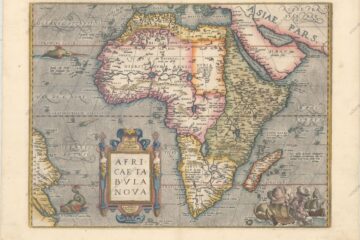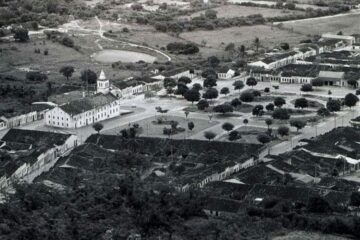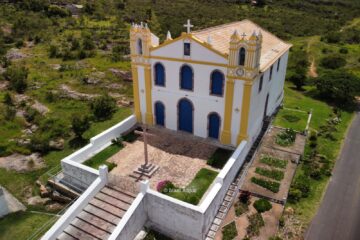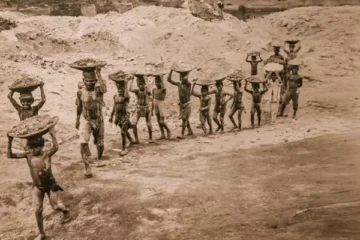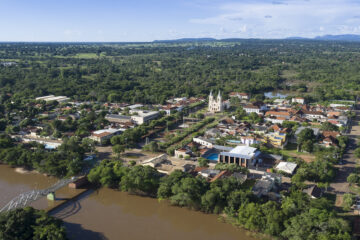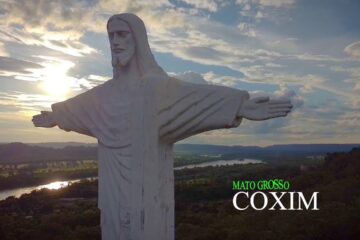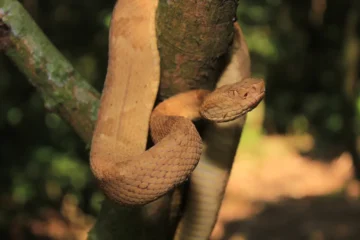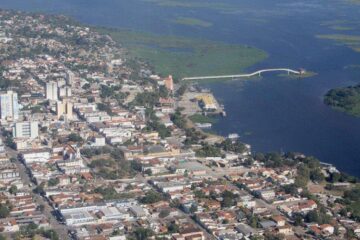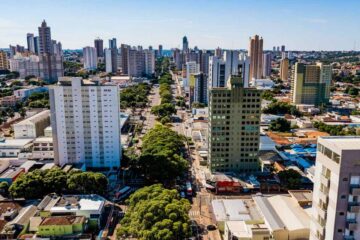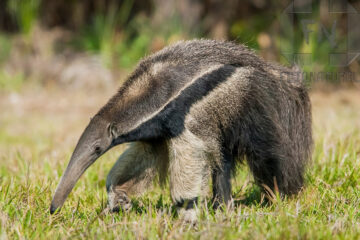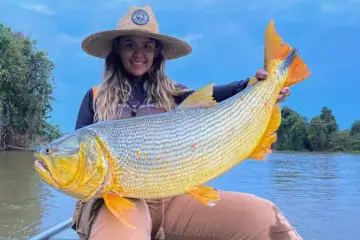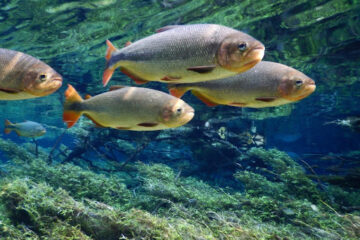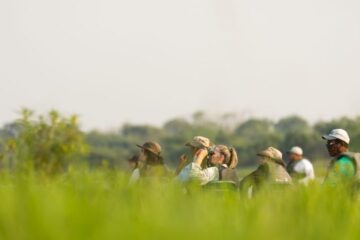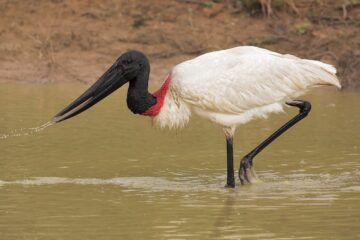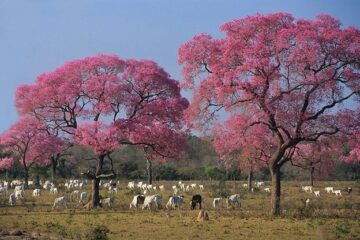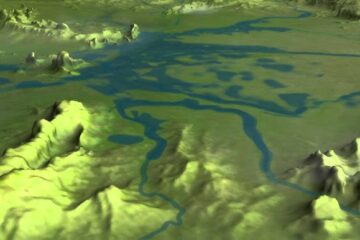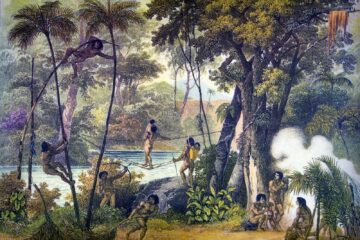Este post também está disponível em:
Português
English
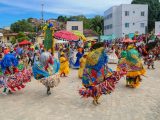
Maracatu is a manifestation of Brazilian folklore that involves dance and music.
Its origin dates back to the time of Colonial Brazil and consists of a mixture of African, Portuguese and indigenous cultures.
It is therefore a genuinely Brazilian expression and was created in the state of Pernambuco, being present, above all, in the cities of Olinda, Recife and Nazaré da Mata.
The carnivalesque modality can also be enjoyed in the carnival of Olinda, in the neighbourhood of Cidade Tabajara.
Maracatu rural in the interior of Pernambuco
On arrival in Nazaré da Mata, in Pernambuco, still on the road, you can see that the town becomes colourful at this time of year.
And it’s not about the carnival decorations, but rather the clothes of the spear-wielding caboclos who arrive noisily in the city for the day of the meeting of the nations of Maracatu.
The traditional procession with almost 100 groups takes over the town square of Nazaré da Mata, renewing itself with women.
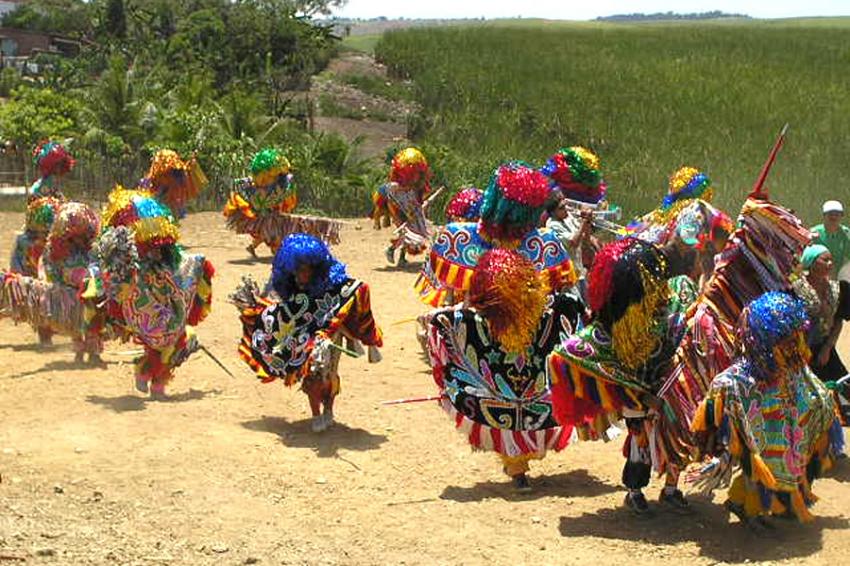
Maracatu Rural em Nazaré da Mata em Pernambuco
With about 30,000 inhabitants and an average of one hour from the capital Recife, the city located in the Zona da Mata of Pernambuco is the centre of the culture of maracatu rural (or baque solto), which is closely linked to the sugar cane plantations, very traditional throughout the region.
The sound of the batuque das alfaias (instrument of the maracatu de baque virado) is not there.
What moves the parade are the allegories of the court costumes and the caboclos de lança, as well as the mestres puxadores, who make the rhyme and lead the procession.
The figure of the caboclo de lança, who symbolises protection within the procession, is usually embodied by men who are respected within the communities.
But now this is no longer the norm. This Monday, one of the first groups to perform was Coração Nazareno, made up only of women from an association in the city.
If in tradition, the role of women was limited to the queens of the court or baianas and the making of clothes, the group proves that they can also be the warriors of the group. “Some still look at us funny. But we raise our flag,” said the group’s mistress.
Rural maracatus can also be seen at the carnival in Olinda, in the neighbourhood of Cidade Tabajara.
Characteristics of Maracatu
-
- presence of religiosity: characteristics of African religions;
- elaborate dances;
- junction of dance and music;
- colourful and extravagant costumes;
- mixture of African, Portuguese and indigenous cultures.
Spirituality is a characteristic trait in the manifestations of maracatu, and its relationship with religions of African origin is present.
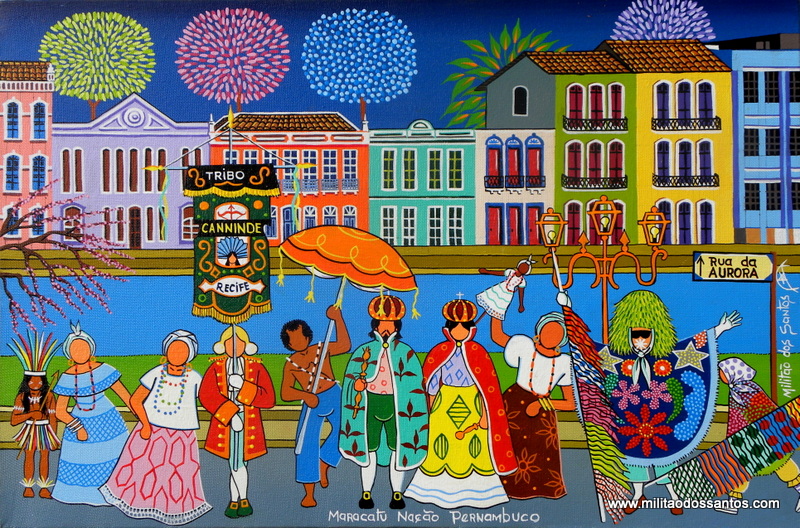
Saiba mais sobre o Maracatu Rural (Baque Solto)
The dances, which present similarities with the candomblé, are well elaborated, especially those of the baianas and the ladies of the palace.
Most of the time it is the baianas who sing, however, everyone can participate in the choir.
How did Maracatu come about?
Maracatu has Afro-Brazilian origins and emerged in the state of Pernambuco in the 18th century. Its oldest expression dates back to 1711.
Tourism and Travel Guide of the Northeast and Pernambuco
